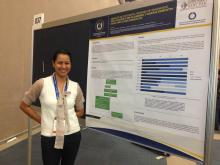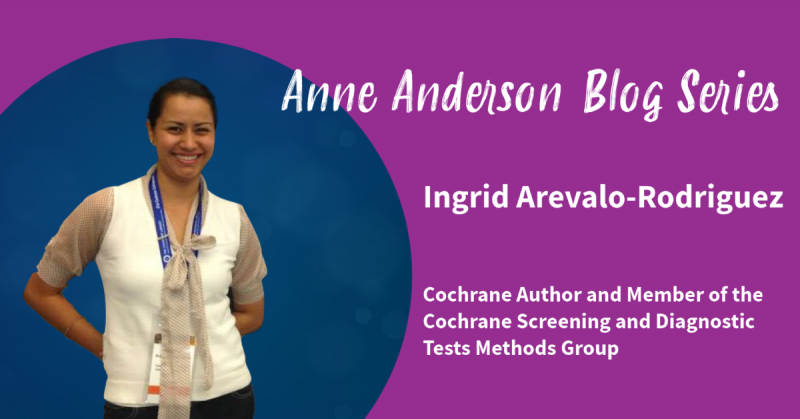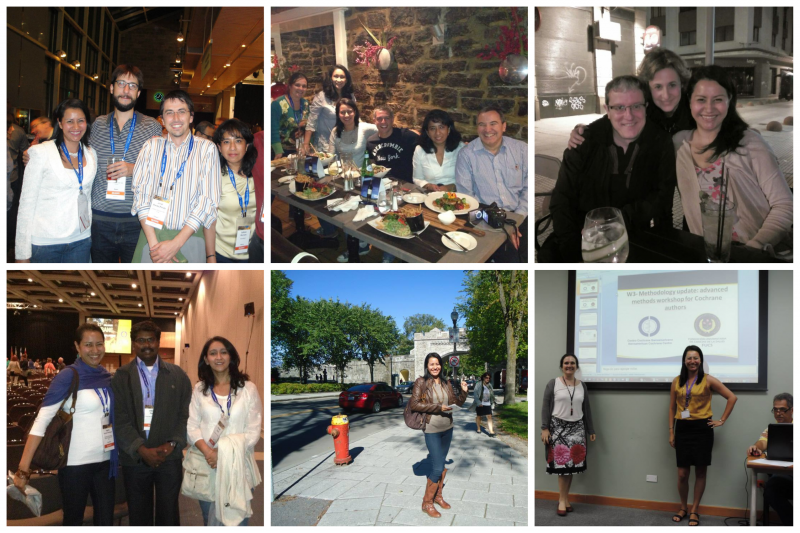
The Annual Anne Anderson Walk is a cherished annual social event in Cochrane, where attendees explore the Colloquium host-city by foot with a guide. Donations by participants are made to next year's Anne Anderson Award. Given current COVID-19 circumstances, the Cochrane community will be not be gathering for the Colloquium in 2021. However, we are holding a Virtual Anne Anderson Walk this year...join us as we share our walks from all over the world!
To accompany this Virtual Anne Anderson Walk, each week we will share blogs from women across Cochrane. Over the coming weeks, we will highlight Cochrane womens' accomplishments, honor their experience, and learn from them, while celebrating the breadth and depth of experience they bring to our global community.

Ingrid Arevalo-Rodriguez has been a member of the Cochrane Diagnostic Test Accuracy (DTA) Editorial team since 2015. She has authored around a dozen Cochrane systematic reviews of interventions and diagnostic tests. She received a Master's degree in Clinical Epidemiology in Colombia in 2007 and a doctorate in Preventive Medicine and Public Health in Spain in 2015. Currently, she is a Senior research fellow in the Clinical Biostatistics Unit, placed in the Hospital Ramon y Cajal (Madrid, Spain).
What impact has Cochrane had on your career?
Being part of Cochrane has led to a world of opportunities and treasured experiences with my fellow Cochranites. I first joined Cochrane in 2009 as a member of the Iberoamerican Cochrane Network as a PhD student in the Preventive Medicine and Public Health Program in the Universitat de Barcelona (Barcelona, Spain). For these years, I worked as coordinator of the Cochrane associate unit placed in the Hospital San José-Fundacion Universitaria de Ciencias de la Salud, contributing to creating a community of clinicians and researchers interested in evidence synthesis methods in my country of birth (Bogota, Colombia). As one of my first Cochrane achievements, we published our first intervention review in the Cochrane Library in 2013, with Caroline Struthers as my first Managing Editor (from the Pain, Palliative and Supportive Care CRG).
Although I started my journey learning the general methods for developing systematic reviews, I always have had a particular interest in the methods related to evidence synthesis of diagnostic evidence. This interest brought me to the Clinical Biostatistics Unit, my current workplace in Madrid, Spain, in 2014 to learn with Javier Zamora and Victor Abraira the basics of diagnostic test accuracy reviews. In the following years, I started as an Editor in the Cochrane Diagnostic Test Accuracy (DTA) Editorial team, the group of experts in charge of the editorial processes for systematic reviews of diagnostic test accuracy. Since then, I have been involved in related initiatives about diagnostic methodologies, including the GRADE approach for diagnostic tools, the development of diagnostic rapid reviews, and the Cochrane COVID-19 DTA review group.

Can you tell us about one of your favourite memories from this time with Cochrane?
In general, all the Colloquiums and meetings of the Cochrane Iberoamerican Network have brought many treasured memories. Since my first colloquium (Quebec 2013), I learned that these spaces are not only for networking but also to share with your friends. I hope that these times will come back very soon.
What current challenges and opportunities do you see for women in science? What advice do you have for early career women scientists getting involved in the evidence-based medicine/decision-making community?
I have had the luck to work with many bright and inspiring women during my carrier; they are the living proof of the value and capacity of women to face challenges at any level. Currently, we have many women in Cochrane who are convenors, editors and lead authors of important reviews with high impact in current clinical practice. In my view, women should not be afraid to lead new challenges and work together to make a real difference.

